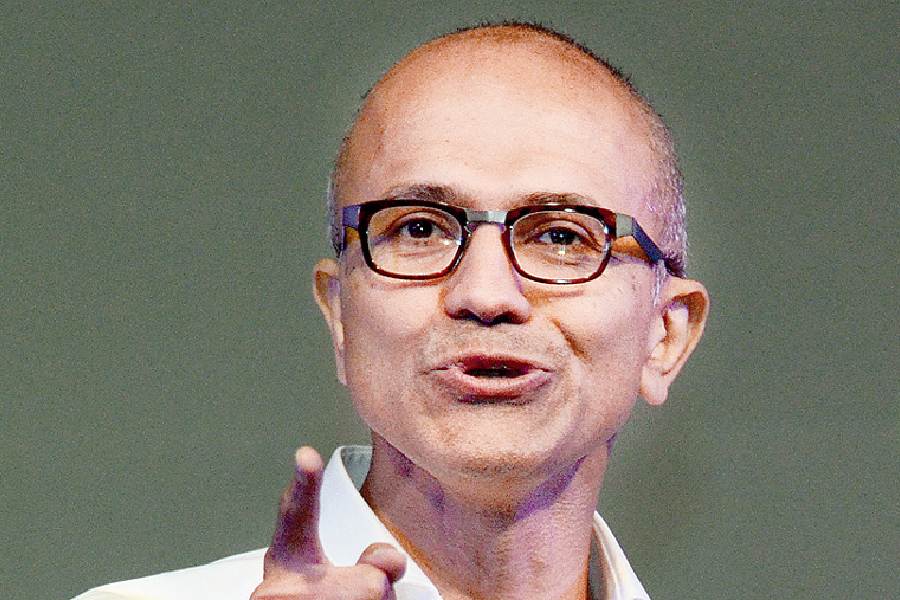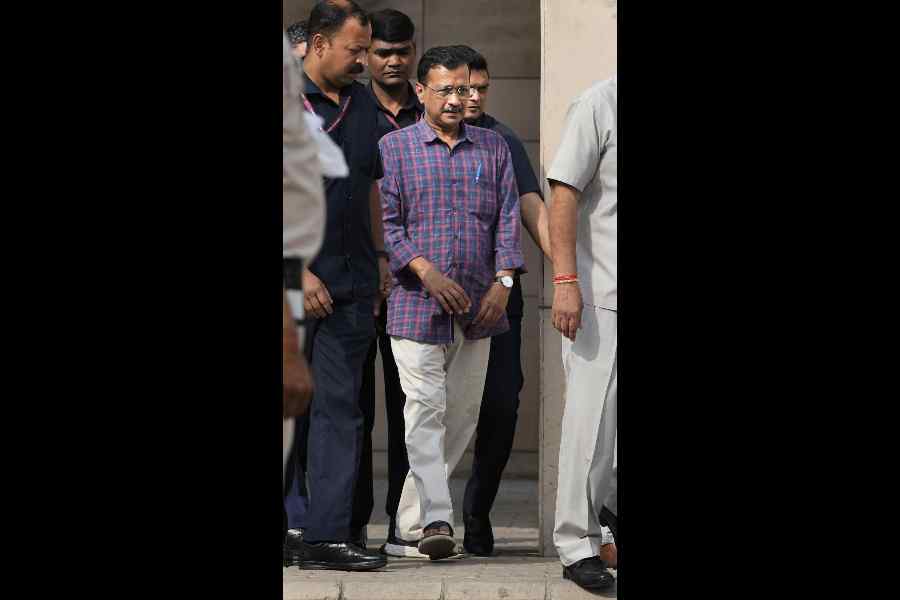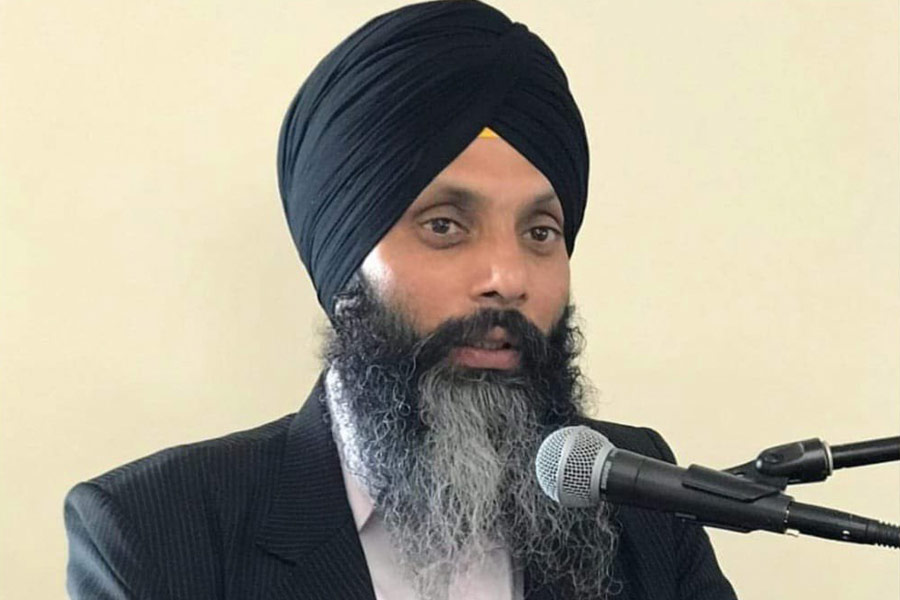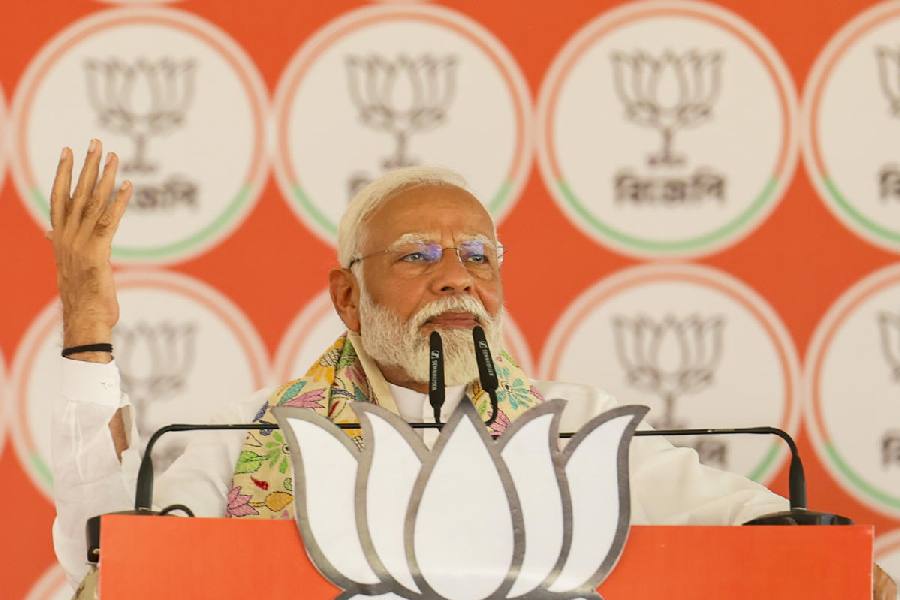Microsoft chief executive Satya Nadella on Monday took the witness stand in the US justice department’s once-in-a-generation antitrust fight with Alphabet’s Google.
Nadella said that Microsoft, itself a tech powerhouse, had sought to make its Bing search engine the default on Apple smartphones but was rebuffed.
Nadella dismissed an argument that Google has made, that it is easy to change defaults on devices, as “bogus”.
“Changing defaults today is easiest on Windows and toughest on mobile,” he said.
The government has argued that Google, worth more than $1 trillion with some 90 per cent of the search market, illegally paid $10 billion annually to smartphone makers like Apple and wireless carriers like AT&T and others to be the default search engine on their devices. The clout in search makes Google a heavy hitter in the lucrative advertising market, boosting its profits.
Google has sought to show that the quality of its products is the reason for its success rather than illegal behaviour.
Nadella became CEO of Microsoft in 2014, long after the tech giant had faced its own federal antitrust lawsuit. That court fight, which began in 1998 and ended in a 2001 settlement, forced Microsoft to end some business practices and opened the door to companies like Google.
As Google, which was founded in 1998, became an industry-leading search engine, the two became bitter rivals. Both have browsers, search engines, email services and a host of other overlaps. They have recently become rivals in artificial intelligence, with Microsoft investing heavily in OpenAI and Google building the Bard AI chatbot among other investments.
It was part of a pattern of Google’s pushing to limit transparency in the federal government’s first monopoly trial of the modern Internet era. Before opening statements began on September 12, Google filed 35 motions and responses in the case — nearly two-thirds of them sealed, according to a tally by The New York Times.
The case is shaping up to be perhaps the most secretive antitrust trial of the last few decades. Not only has Google argued for the landmark trial to be largely closed off to the public, but so have other companies that are involved, such as Apple and Microsoft. Apple even fought to quash subpoenas, describing them as “unduly burdensome”, to get its executives out of giving testimony.
The upshot is that last week, more than half of the testimony in the trial was given behind closed doors, according to one analysis. When one witness, the chief executive of the search engine DuckDuckGo, testified on Thursday, he spoke on the stand for nearly five hours — of which just one hour was open to the public. At the judge’s request, the justice department, which is one of the plaintiffs, has also removed its presentations and evidence from the open web.
The lack of transparency continued this week as a top Apple executive, Eddy Cue, testified on Tuesday about a crucial search agreement that Apple struck with Google. The federal government has accused Google of illegally using agreements with companies like Apple to maintain its monopoly in online search and to crush rivals.
Late on Monday last week, Apple petitioned the court to have Cue’s testimony on the details of its Google agreement take place behind closed doors because it was concerned the Justice Department’s lawyer could “blurt out” confidential information. Questioning Cue in open court posed “a substantial risk” of revealing Apple’s business relationships and negotiations, the company’s lawyers wrote.
When the trial resumed on Tuesday, it began with 45 minutes of closed discussions over confidentiality — including how to handle documents and business details during Cue’s testimony. Then Cue testified for about four hours, more than half of which was closed to the public. During his open testimony, Cue spoke in generalities about how Apple teamed up with Google and revealed few details about the contracts.
Reuters and New York Times News Service










